Sleeping Positions to Help Reduce Covid-19 Coughing and Improve Sleep Quality
Jul 26th 2023
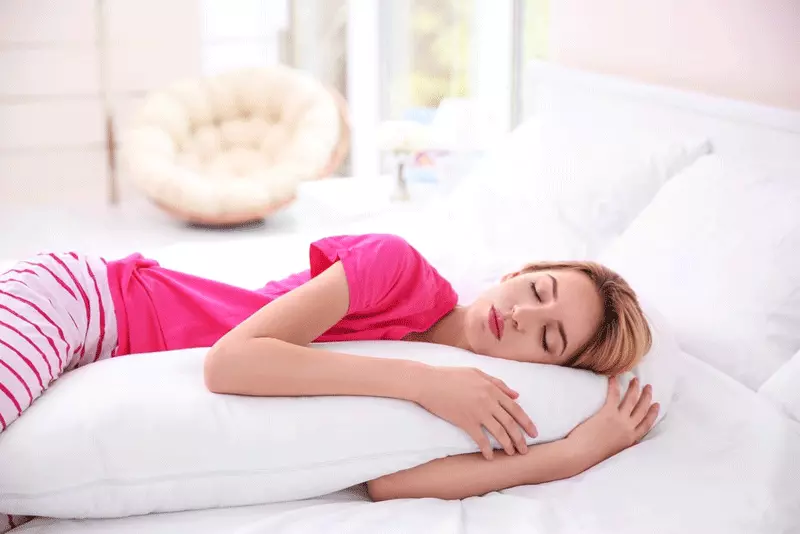
Woken up in the dead of night by persistent Covid-19 coughing again? You're not alone. The aftermath of this global pandemic has left many of us struggling to catch our forty winks, turning peaceful nights into a relentless battle against sleep disruption. But, believe it or not, the power to transform these restless hours might just be lying in your hands (or rather, your sleeping position). Imagine reclining in bed, wrapped in a blanket of serene slumber, unperturbed by the racking coughs you've grown so accustomed to - sounds unreachable? Think again! Dive deep with us into this sleeper's handbook and discover how simply switching your sleeping positions could become your secret weapon to conquer Covid-19 induced coughing and reclaim your kingdom of dreams!
There is no definitive answer to this question as everyone's body is different. However, one possible suggestion is to sleep on your stomach or side to help reduce cough-related discomfort and improve lung function. This position may also help prevent fluid buildup in the lungs and decrease the risk of respiratory distress. It's important to consult with a medical professional for personalized advice on the best sleeping position for your specific situation.
Sleeping Positions to Alleviate COVID-19 Cough
COVID-19 can cause symptoms such as coughing, sneezing, and shortness of breath, which can interfere with your sleep quality. Choosing the right sleeping position can help alleviate these symptoms, allowing you to get a good night's sleep. The following are some sleeping positions that can help alleviate COVID-19 cough:
Sleeping on Your Back: Sleeping on your back is generally considered the best position for people suffering from respiratory issues. It helps to keep the airways open and allows you to breathe comfortably. However, it may not be the best choice for COVID-19 patients who experience coughing because it can lead to postnasal drip, which can make coughing worse.
Side Sleeping: If you experience mild coughing, sleeping on your side may offer relief. It helps to keep the airways open and reduces the risk of postnasal drip. However, if you have severe coughing episodes throughout the night, it may not be an ideal position as it can cause discomfort in your shoulders.
Elevating Your Head: Elevating your head using pillows can help reduce coughing episodes by preventing mucus from dripping down into your throat. This position also helps reduce the risk of developing heartburn and acid reflux. Try propping up your head with two or three pillows if you’re experiencing any kind of respiratory distress at night.
Sleeping on Inclined Mattress: If you find that elevating your head with pillows is not enough to relieve your symptoms, try sleeping on an inclined mattress. An inclined mattress raises the upper body at a slight angle so that gravity can help drain mucus away from the throat. It is similar to how doctors recommend putting children with colds in bouncy chairs.
Prone Position for Improved Oxygen Levels
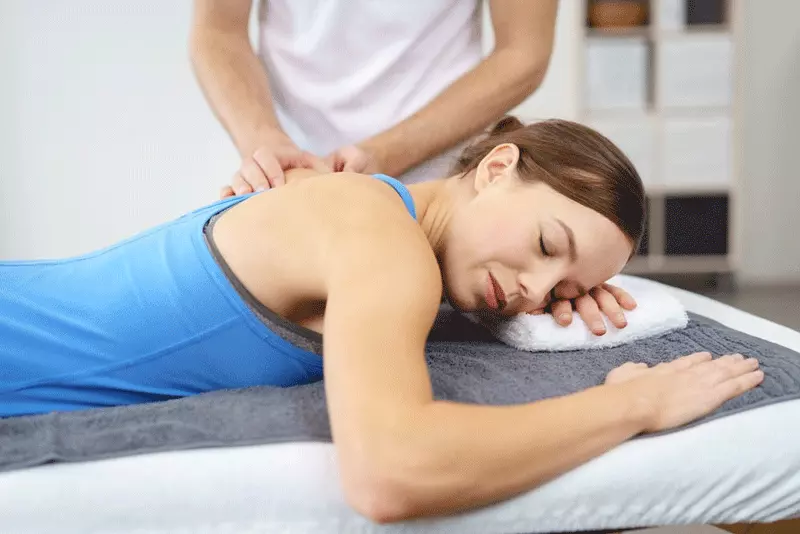
Prone position refers to lying on your stomach while sleeping. This position has been shown to improve lung function and oxygen levels in patients suffering from respiratory distress caused by COVID-19. Here are some ways that the prone position can help alleviate COVID-19 symptoms:
Increased Oxygenation: When you lie face down, gravity helps the lungs to expand more fully, allowing for better oxygenation. According to a 2020 review in Clinical Medicine, lying in prone position allows for better expansion of the back and lung region, which can enhance the body's removal of fluid buildup in the lungs.
Decreased Mortality Rates: Studies have found that prone positioning may decrease mortality rates among patients on ventilators who are experiencing acute respiratory distress syndrome (ARDS). A 2020 study in Academic Emergency Medicine suggests that prone positioning might help when done correctly for ventilated COVID-19 patients.
May Not Work for Awake Patients: A 2022 study in BMJ suggests that proning may not work as well for COVID-19 patients who are awake. Patients not staying in the prone position was one of the reasons mentioned in the BMJ study, and more research should be done on this topic, including ways to get patients to adhere to lying prone.
Reduced Pressure on Lungs: The prone position also reduces pressure on the lungs, giving them a chance to rest and heal. This can result in faster recovery times and less discomfort for those suffering from COVID-19 related respiratory issues.
Determining the right sleeping position during a COVID-19 infection can be challenging. However, sleeping on your stomach or elevating your head may help improve oxygen levels and reduce coughing episodes at night. Keep in mind that sleep quality is essential for overall health and well-being, so it's important to find a comfortable position that works for you. In the next section, we will discuss lifestyle factors that can influence your sleep quality and how they relate to COVID-19.
Left Side Sleeping for Comfort
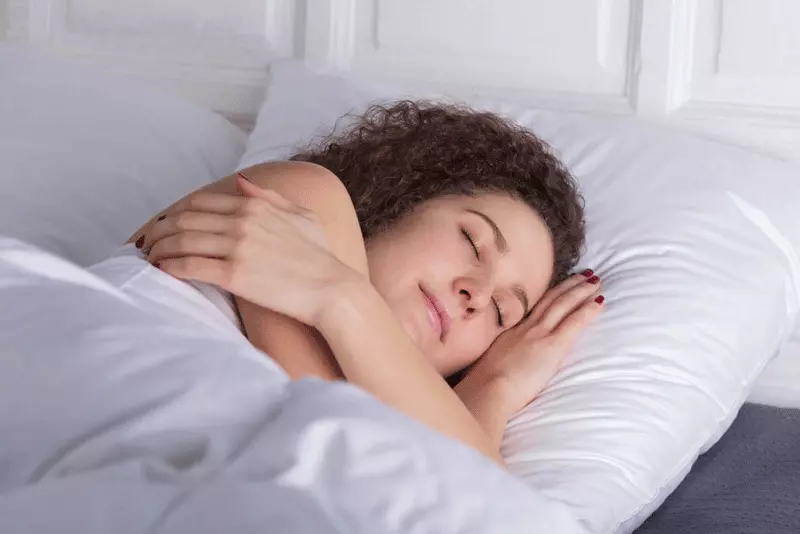
When it comes to sleeping positions to alleviate COVID-19 cough, left side sleeping has shown some significant benefits. Not only does it allow for better blood and lymph circulation, but it can also ease acid reflux and heartburn symptoms.
Sleeping on the left side can help relieve pressure on the lungs and improve airflow, making it ideal for individuals with respiratory issues caused by COVID-19. This position can also reduce snoring and benefit individuals who suffer from sleep apnea.
Many individuals with chronic illnesses have reported that sleeping on their left side helped them breathe easier and sleep more comfortably. This anecdotal evidence is supported by scientific research, which shows that left side sleeping can benefit respiratory function.
While left side sleeping is beneficial for some individuals, it may not be the best option for everyone. Pregnant women may find it uncomfortable due to the extra weight they carry, and individuals with shoulder pain or injuries may experience discomfort in this position. It's essential to find a sleeping position that works best for your individual needs.
With that being said, let's now explore lifestyle factors that can influence sleep quality further.
Lifestyle Factors Influencing Sleep Quality
Various factors can affect sleep quality, including stress levels, eating habits, exercise routines, and medications.
Stress is one of the most significant factors that impact sleep quality. When we are stressed, our bodies release cortisol, a hormone that stimulates alertness. This heightened state of alertness significantly impacts our ability to fall asleep and stay asleep throughout the night.
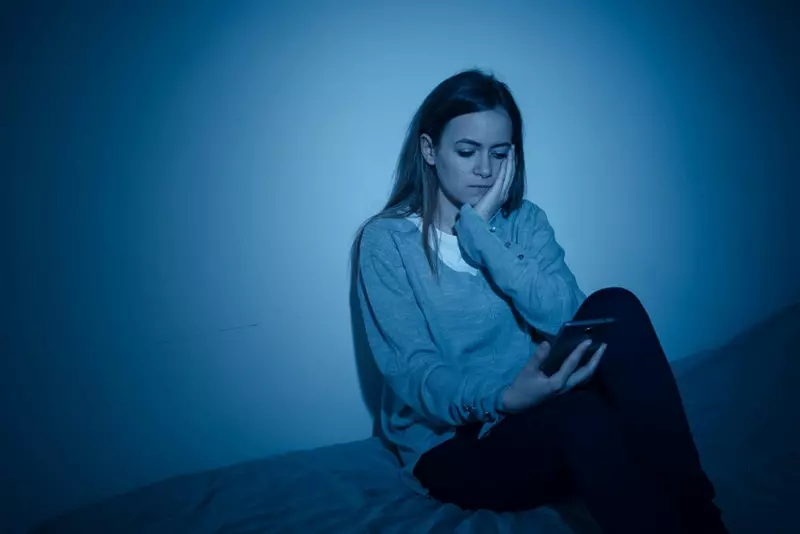
One way to mitigate stress levels before bedtime is through relaxation techniques such as meditation or yoga. Even simple breathing exercises can help lower stress levels and promote more restful sleep.
Think of building healthy sleep habits as creating a set of daily rituals that tell your brain it's time to wind down and prepare for rest. Just like you would turn off the lights before going to bed, engaging in relaxation techniques can signal to your brain that it's time to sleep.
Another factor that can affect sleep quality is diet. Eating heavy, spicy, or acidic meals before bedtime can cause heartburn, indigestion and lead to discomfort throughout the night. It's best to avoid these types of foods and opt for lighter, nutrient-dense options instead.
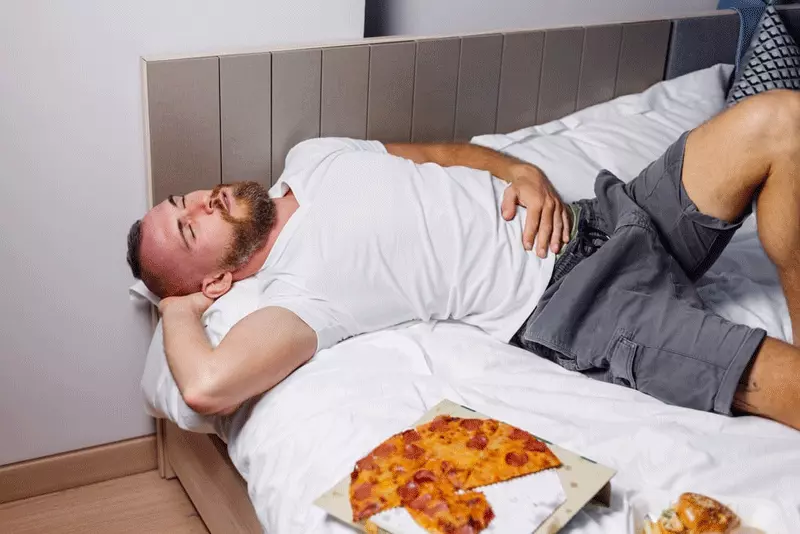
Eating a small snack before bed can also be beneficial as it helps regulate blood sugar levels and prevents hunger pains from waking you up throughout the night.
While regular exercise is generally beneficial for sleep quality, working out late in the evening may not be ideal for everyone. Exercise stimulates the body and increases alertness, making it harder to fall asleep right away. If you're someone who struggles with sleepin,g consider moving your workouts earlier in the day or practicing more relaxing exercises such as yoga or stretching.
Now that we've explored factors that influence sleep quality let's take a look at therapies that complement sleeping positions.
According to a 2020 review in Clinical Medicine, the prone position, or sleeping on your stomach, allowed for better expansion of the back and lung regions, potentially improving the body's ability to remove fluid buildup in the lungs.
Research also suggested that lying in the prone position may decrease mortality rates among ventilated patients experiencing acute respiratory distress syndrome (ARDS), a severe condition that can result from COVID-19.
However, a subsequent study published in BMJ during 2022 indicated that the prone position might not be as effective for awake COVID-19 patients. In this study, patient non-compliance with maintaining the prone position was cited as an area requiring further research.
Stress, diet, exercise routines, and medications can all impact sleep quality. To reduce stress levels before bedtime, relaxation techniques like meditation or breathing exercises can be beneficial. Creating a set of daily rituals can communicate to the brain it's time for rest. Eating heavy meals before bed can cause discomfort, and opting for light and nutrient-dense foods can promote better sleep quality. Regular exercise is good for sleep, but working out late in the evening may be counterproductive for some; practicing relaxing exercises like yoga or stretching can help. Understanding these factors and adopting healthy sleep habits can improve sleep quality and promote better overall health.
Considerations for People with Chronic Illnesses
People with chronic illnesses are at a higher risk of contracting COVID-19 and experiencing more severe symptoms. If you have a chronic illness, it's crucial to take extra precautions and adjust your sleeping position to alleviate COVID-19 coughing while ensuring maximum comfort.
For instance, individuals suffering from acid reflux can experience more severe symptoms due to COVID-19 coughing. To mitigate the effects of coughing caused by the virus, people living with chronic acid reflux should sleep on their left side as it allows the esophagus to remain elevated, preventing acid from flowing into the throat.
Additionally, studies suggest that individuals suffering from sleep apnea may be at a higher risk of severe complications from COVID-19. In this case, using a CPAP machine is essential for maintaining healthy oxygen levels and reducing coughing episodes in patients with sleep apnea. Sleeping on one's side also aids in keeping the airways open, making breathing easier for those with respiratory problems.
However, it's worth noting that adjusting sleeping positions doesn't work for everyone living with chronic illnesses and may not be suitable for certain conditions such as spinal cord injuries or sleep disorders like restless leg syndrome. It's vital to consult your doctor before changing your sleeping position to ensure that it doesn't affect other aspects of your health negatively.
With that said, let's take a closer look at some therapies complementing sleeping positions that can improve your overall sleep quality and alleviate COVID-19 coughing.
Therapies Complementing Sleeping Positions
In addition to adjusting sleeping positions for maximum comfort and relief from COVID-19 coughing, there are several complementary therapies that can aid in improving sleep quality.
One such therapy is hot-cold therapy, which can help reduce inflammation and promote relaxation. This therapy involves placing a hot or cold compress on different parts of the body, depending on where the pain is localized. For instance, if you're experiencing coughing fits from COVID-19, applying a cold compress to your chest can help reduce inflammation and provide relief from coughing.
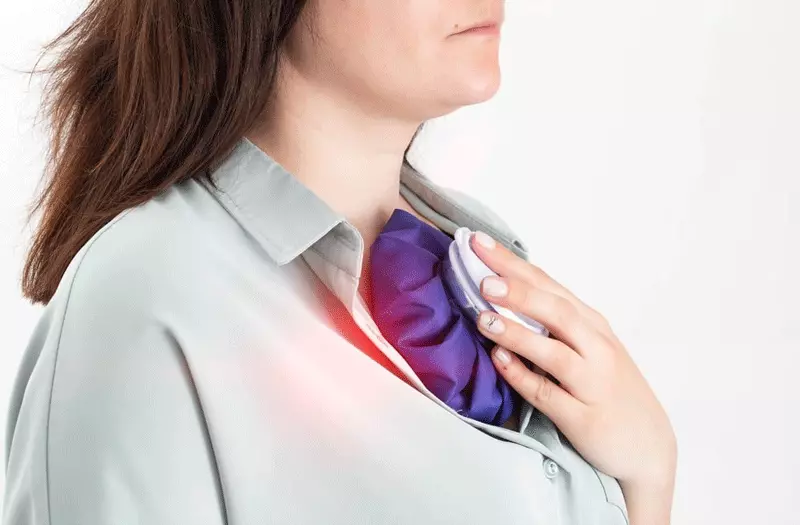
Likewise, meditation and deep breathing exercises can help calm the mind and improve sleep quality, both conducive to helping alleviate respiratory symptoms. These exercises are particularly helpful for individuals dealing with anxiety or insomnia as they encourage slower breathing rates and quieter minds, making it easier to fall asleep.
Think of these complementary therapies as additional tools in your toolbox to enhance your sleeping experience during the pandemic. Similar to how one would need different types of wrenches, pliers, and screwdrivers for various home improvement jobs, you may require multiple therapies that cater to your specific needs for achieving maximum sleep quality.
It's essential to note that these therapies may not work for everyone and should be done under a physician's guidance to avoid complications. Hot-cold therapy shouldn't be applied excessively or used if you have certain medical conditions like diabetes or vascular disease, while meditation may not be suitable for individuals with certain mental health issues.
Now that we've looked at complementary therapies let's move on to creating a comfortable sleeping environment for COVID-19 patients.
Hot-Cold Therapy and Its Effects
When it comes to helping with Covid-19 coughing and improving sleep quality, hot-cold therapy can offer some relief. This therapy is a natural alternative that can be easily done in the comfort of your own home.
Hot-cold therapy usually involves alternating between hot and cold temperatures to help boost circulation, reduce inflammation, and relieve pain. Some examples of hot-cold therapy include applying hot and cold compresses, taking a warm bath followed by a cold shower, or using a hot-cold diffuser.
Think of your body like a car engine: if it's running too hot, it can overheat and cause damage. Similarly, if inflammation levels within your body are high, they can lead to negative symptoms. Using heat helps to dilate blood vessels and improve circulation in inflamed areas. Conversely, cold causes vasoconstriction - the narrowing of blood vessels - which can reduce swelling and numb any pain or discomfort.
Studies have suggested that exposure to heat may increase levels of natural killer cells—white blood cells that protect against viruses. On the other hand, cold therapy has been shown to promote the production of norepinephrine – a hormone that may help reduce inflammation.
One way you might try hot-cold therapy at home is with a warm bath followed by a quick dip in a cold plunge pool or shower. Start with a 10-minute soak in warm water before either lowering the temperature of the water on its own or hopping into a separate cold water source.
But is there any real evidence behind this natural remedy? Researchers did try out this theory on people who had developed respiratory tract infections during winter months. Participants were either given low doses of oral vitamin D supplements or exposed for brief periods to ultraviolet radiation (UVR) from artificial lamps, which increased vitamin D blood concentrations and helped fight the infections in comparison to those given a placebo.
With that being said, there is no guarantee that hot-cold therapy will work for everyone. The benefits have largely been recorded on an individual basis. However, it may be worth a try for someone wanting a natural way to help improve their sleep quality and alleviate Covid-19 coughing.
Creating a Comfortable Sleeping Environment for COVID-19 Patients
Creating a comfortable sleeping environment is critical for individuals with Covid-19 as they recover. Here are several tips to help ensure that your sleep environment is as comfortable as possible:
1. Temperature Control: Keep the room at an optimal temperature of roughly 60-67 degrees Fahrenheit. Consider using fans or adjusting your air conditioning system to maintain a healthy airflow.
2. Minimize Noise: While you can't completely eliminate noise in your environment, consider investing in earplugs or noise-canceling headphones to help minimize distractions and create a more peaceful environment.
3. Lighting: Keeping the bedroom dark helps promote melatonin production and supports restful sleep, so consider using blackout curtains or shades.
4. Comfortable Bedding: Invest in high-quality bedding made with breathable and moisture-wicking materials like cotton or bamboo to stay cool throughout the night.
5. Antimicrobial Linens: Consider switching out your bedding daily if possible, especially if you're someone who tends to sweat heavily while sleeping due to fever symptoms associated with Covid-19.
A pillow that props up your head properly can also help keep airways open and reduce coughing while you sleep during Covid-19 recovery. Alternatively, putting extra pillows under your chest may also relieve pressure in the lungs by opening up airways.
It's important to note that some remedies such as sleeping in an upright position or choking up on several pillows have not been supported by research as a helpful way to alleviate coughing during the recovery process. However, it may be worth experimenting with what works best for you.
Ultimately, creating the ideal sleeping environment is all about personal preference and needs. Some prefer complete silence, while others may enjoy some white noise in the background or music to help them sleep soundly after a long day of battling Covid-19 symptoms. Experimentation is key as you find what works best for your individual case.
Frequently Asked Questions and Explanations
Does sleeping in a particular position reduce the risk of catching COVID?
While there are no definitive studies proving that sleeping in a particular position can reduce the risk of catching COVID-19, some research suggests that certain positions may help alleviate symptoms such as coughing and improve overall sleep quality.
For instance, experts suggest that sleeping on your side (specifically the left side) may help reduce acid reflux and heartburn, which can be common symptoms of COVID-19. Additionally, sleeping with your head elevated may help ease breathing difficulties often associated with the virus.
However, it's important to note that these positions aren't a cure-all and shouldn't replace other preventive measures such as washing hands regularly, wearing masks, and social distancing. The best way to avoid contracting COVID-19 is still by taking all necessary precautions and following public health guidelines.
Overall, while sleeping positions may offer some comfort and relief for those experiencing COVID-19 symptoms, they aren't a guaranteed solution. It's crucial to continue practicing good hygiene habits and staying informed about the latest recommendations from health authorities.
Is there scientific research supporting the idea that a specific sleeping position can improve COVID recovery time?
Yes, there is scientific research supporting the idea that a specific sleeping position can improve COVID recovery time. A study published in the Journal of Hospital Medicine found that patients with respiratory distress who slept on their stomachs, also known as prone positioning, had better oxygenation levels and less need for mechanical ventilation than those who slept in other positions. Another study published in The Lancet Respiratory Medicine showed that prone positioning for just 30 minutes per day resulted in improved lung function and oxygen saturation levels in patients with COVID-19.
Furthermore, sleeping on your side has been shown to reduce snoring and sleep apnea which can lead to a reduction of coughing at night. The National Sleep Foundation suggests that sleeping on your back can cause the tongue to collapse against the back of your throat, leading to an increase in both snoring and coughing. Therefore, incorporating different sleep positions can help reduce coughing and potentially speed up recovery time for those with COVID-19.
Overall, while more research is needed, current studies support the idea that certain sleeping positions can improve COVID-19 recovery time and quality of sleep. It's important to consult with a healthcare professional before making any adjustments to your sleep habits.
Can sleeping in a specific position help alleviate COVID symptoms other than coughing?
While research on the topic is still developing, there is evidence to suggest that sleeping in certain positions can potentially alleviate other COVID-related symptoms. One study found that sleeping on your stomach, also known as prone positioning, improved oxygen saturation in COVID patients with severe respiratory distress. This position allows for better ventilation of the lungs by opening up the lower parts of the lungs that tend to collapse when lying on your back or sitting upright.
Additionally, some experts suggest that sleeping with your head elevated can help alleviate COVID-related congestion and reduce the risk of pneumonia. When you sleep with your head elevated, gravity helps drainage of mucus from the nose and sinuses, which could help alleviate upper respiratory symptoms.
It's important to note that while sleeping positions may provide some relief for COVID symptoms, they should not be seen as a substitute for medical treatment or prevention measures such as masks and social distancing. Always consult with a healthcare professional if you're experiencing symptoms of COVID-19.
In conclusion, while more research is needed to fully understand the benefits of specific sleeping positions for COVID-19 patients, there is evidence to suggest that prone positioning and sleeping with your head elevated may potentially alleviate certain symptoms. Adding these positions to your sleep routine could improve your chances of getting quality rest while dealing with this pandemic.
Are there any potential negative effects associated with sleeping in certain positions while battling COVID?
Yes, there are certain sleeping positions that may have negative effects on patients battling COVID-19. The virus attacks the respiratory system and can cause coughs which result in severe chest pain and shortness of breath; therefore, sleeping positions play a critical role in reducing coughing and helping patients to breathe more easily.
Sleeping on your stomach has been recommended as a way to help improve oxygenation in critically ill COVID-19 patients. According to a study by Dr. Luciano Gattinoni, "prone positioning can lead to better lung ventilation distribution, respiratory mechanics improvement, lung protection, and improved oxygenation."
On the other hand, sleeping on one's back may worsen the symptoms of COVID-19 because gravity pulls the tongue back, obstructing the airway, and leading to compromised breathing. This is especially true for people who suffer from sleep apnea and other respiratory conditions.
Furthermore, sleeping in an awkward position may cause general muscle discomfort and even lead to musculoskeletal disorders such as neck or back pain. It is recommended that patients consult with their healthcare providers for specific advice on the best sleep position based upon their individual circumstances.
In conclusion, while certain sleeping positions may have negative effects when battling COVID-19, there are also positions that can significantly improve breathing and patient outcomes. So, it is imperative to select suitable sleeping positions that meet individual needs while recovering from COVID-19.
What are some additional tips for improving sleep quality when dealing with a COVID cough?
Great question! In addition to adjusting your sleeping position, there are several other tips you can follow to improve sleep quality while dealing with a COVID cough. Here are a few:
1. Keep your bedroom cool: According to the National Sleep Foundation, keeping your bedroom between 60-67 degrees Fahrenheit can help promote better sleep. A cooler room can also help ease any discomfort from your cough and make it easier to breathe.
2. Use a humidifier: Adding moisture to the air can help soothe your respiratory system and make it easier to breathe when you're coughing. The American Lung Association recommends using a cool mist humidifier in your bedroom for best results.
3. Practice relaxation techniques: Anxiety and stress can exacerbate symptoms of both COVID-19 and coughing, so it's important to find ways to relax before bed. Deep breathing exercises, meditation, or gentle yoga stretches can all be effective ways to calm your mind and body before sleep.
4. Avoid caffeine and alcohol: Both caffeine and alcohol can interfere with sleep quality, so it's best to avoid them if you're struggling with a COVID cough. Instead, try sipping on herbal tea or warm milk before bedtime.
Remember, everybody is different, so it may take some trial and error to find what works best for you. If you continue to struggle with sleep despite these tips, consider talking to your doctor about other options that may be available.
